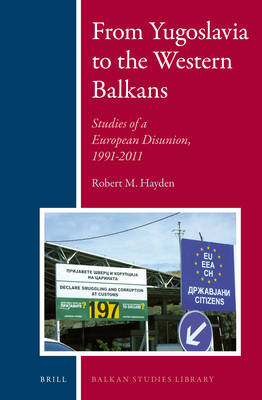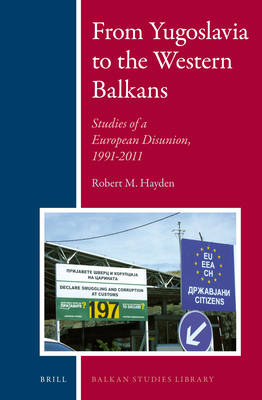
Door een staking bij bpost kan je online bestelling op dit moment iets langer onderweg zijn dan voorzien. Dringend iets nodig? Onze winkels ontvangen jou met open armen!
- Afhalen na 1 uur in een winkel met voorraad
- Gratis thuislevering in België vanaf € 30
- Ruim aanbod met 7 miljoen producten
Door een staking bij bpost kan je online bestelling op dit moment iets langer onderweg zijn dan voorzien. Dringend iets nodig? Onze winkels ontvangen jou met open armen!
- Afhalen na 1 uur in een winkel met voorraad
- Gratis thuislevering in België vanaf € 30
- Ruim aanbod met 7 miljoen producten
Zoeken
€ 157,45
+ 314 punten
Omschrijving
This book brings together important original contributions to scholarly and political/policy debates over the disintegration of Yugoslavia, and especially the war in Bosnia. The analyses are grounded on empirically-based arguments about social and political dynamics, resonate with much larger/enduring issues of social science inquiry, and consistently challenge commonly-held beliefs about the Balkans that are based more on ignorance, misunderstanding, or outright prejudice, than on intimate knowledge of the region, its peoples, and their histories. When first published, some of these essays represented sharply distinctive analyses which have since then become "common wisdom." Hayden's arguments about how this multinational European federation collapsed following a severe economic crisis are disturbingly relevant to analyzing the crisis of the European Union twenty years later.
Specificaties
Betrokkenen
- Auteur(s):
- Uitgeverij:
Inhoud
- Aantal bladzijden:
- 410
- Taal:
- Engels
- Reeks:
- Reeksnummer:
- nr. 7
Eigenschappen
- Productcode (EAN):
- 9789004241909
- Verschijningsdatum:
- 12/10/2012
- Uitvoering:
- Hardcover
- Formaat:
- Genaaid
- Afmetingen:
- 160 mm x 236 mm
- Gewicht:
- 771 g

Alleen bij Standaard Boekhandel
+ 314 punten op je klantenkaart van Standaard Boekhandel
Beoordelingen
We publiceren alleen reviews die voldoen aan de voorwaarden voor reviews. Bekijk onze voorwaarden voor reviews.











